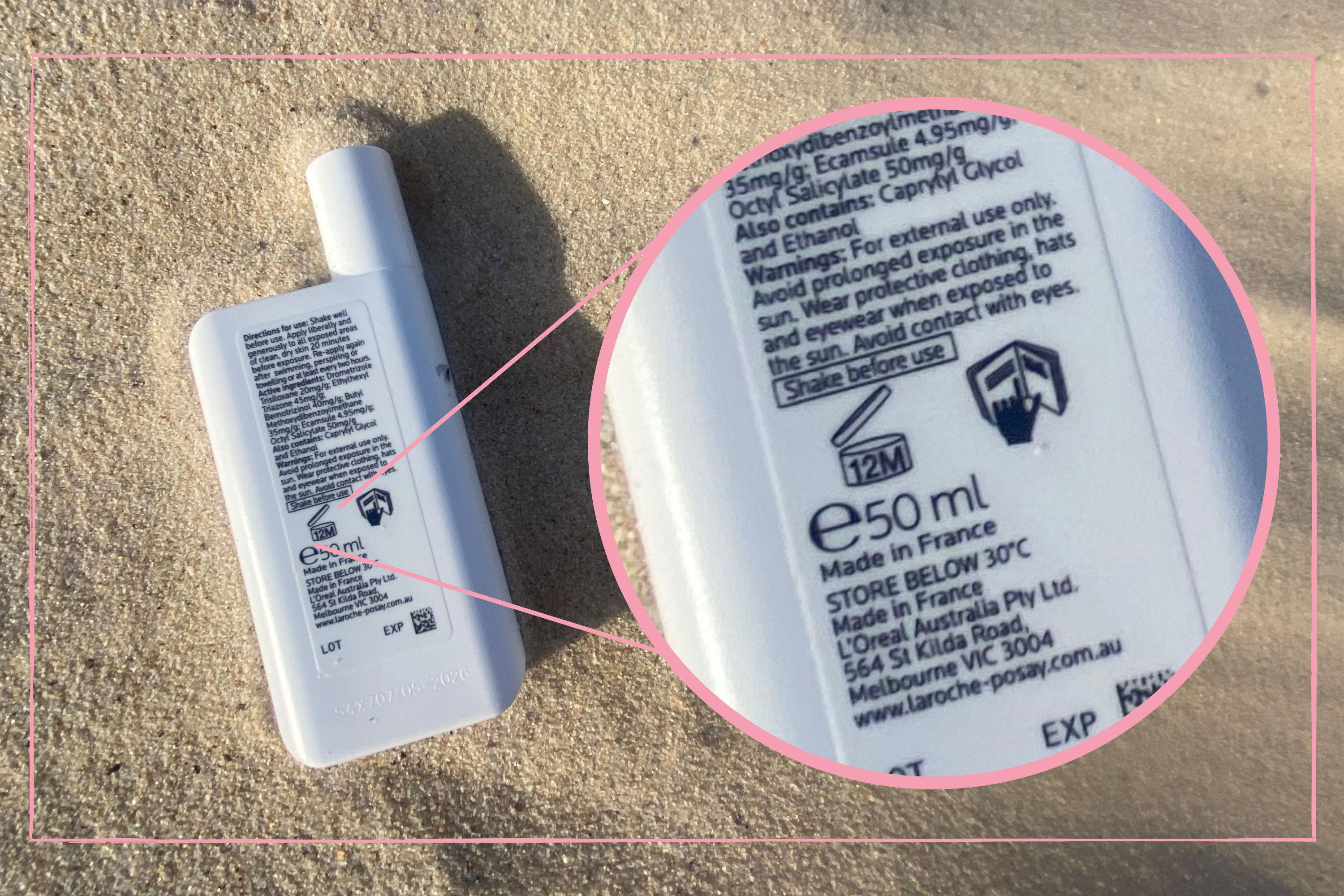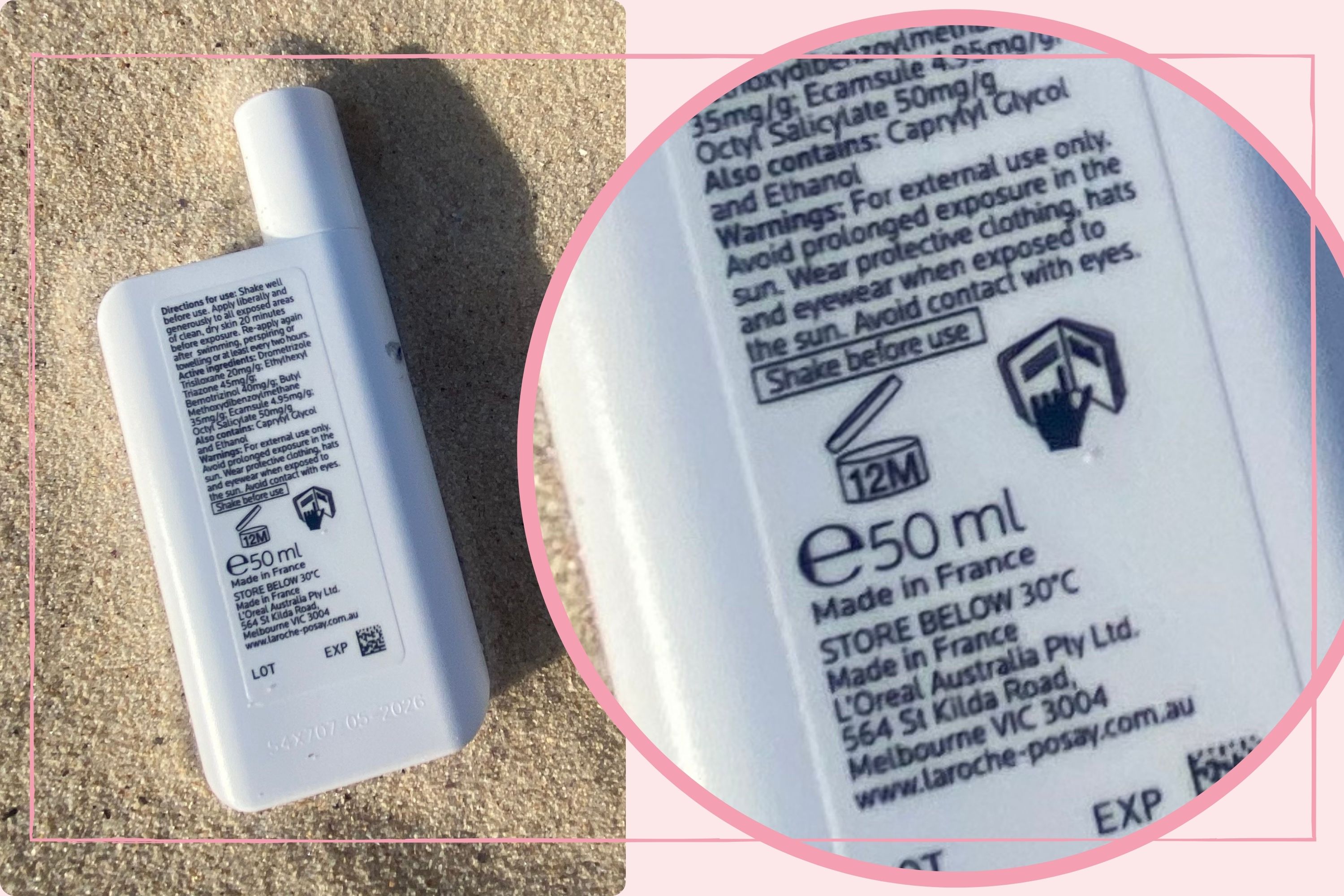Does sun cream go out of date? Plus, the signs it has expired
We asked doctors and a pharmacist to tell us does sun cream go out of date, and how to tell if it has expired, to make sure you and your family are getting the best protection


We asked the experts to tell us does sun cream go out of date and how to know when it's expired, so you can keep yourself and your family properly protected this summer.
Whether it’s the arrival of the long awaited summer season, or a family holiday to a hot and sunny destination, we’ve all been in that situation where it’s suddenly time to dig out the sun cream from the back of the cupboard, and it’s been so long that we can’t remember when we bought it, how long it’s been open or which sun cream to use on your face to avoid breaking out.
While as parents we always want to invest in the best sun creams for both ourselves and the best sunscreen for our kids, something we might forget to check is if the sun cream we’ve dug out of the cupboard has expired.
The expiry date on suncream is often overlooked, but it’s actually really important to know if your suncream is out of date so that you can replace it and ensure everyone in the family is properly protected from the sun.
Does sun cream go out of date?
Yes, sun cream does go out of date and the longer a bottle has been open for, the less effective it is at protecting your skin, so if you’re using the same sunscreen from last summer, it's important to check that it hasn’t expired before you use it on yourself or others.
Dr Sasha Dhoat, consultant dermatologist at Stratum Clinics, says "Sunscreens past the expiry date are unable to achieve the SPF rating stated on the container, the primary anti-ageing and anti-skin cancer effect and are not fit for purpose. That goes for both chemical and mineral sunscreens."
Abbas Kanani, lead pharmacist and health adviser for Chemist Click, says "Sunscreens are required to work for at least three years by the Food and Drug Administration (FDA), however some sunscreens may lose their effectiveness sooner and this can vary from cream to cream depending on brand."
Parenting advice, hot topics, best buys and family finance tips delivered straight to your inbox.
As with all other cosmetics and skincare products, you won't feel the benefit if you use something that is out of date. Expired sun cream may allow nasty sunburns.
How do you know if sun cream is out of date?
There is usually a symbol and expiry date on the sunscreen bottle which will tell you how long the product will last once it has been opened. Aside from the expiry symbol, there are also a number of tell tale signs that your sunscreen is out of date. These include if your sun cream has a strange smell, or if it has a watery, lumpy or even separated liquid in the bottle.
Pharmacist Abbas Kanani says, "Expired sunscreen usually loses its consistency or may become discoloured or look slightly yellow - it may no longer look or smell the way it did when you bought it." He adds, "Physical and chemical sunscreens are different in that physical sunscreens deteriorate and chemical sunscreens oxidize."
Where is the expiry date on sunscreen?
Most sun cream products will have information on the bottle that tells you the expiry date. This will either be the expiry date itself (as on food packaging), text on the bottle that tells you how long you can use it for after opening, or a little jar symbol with a lifted lid to indicate how long you can use it for after you've opened it.
The little jar symbol will feature a number followed by the letter 'M' - the number refers to how many months the sun cream will last once it's been opened. So, '12M' means your sun cream should be used within 12 months of it being opened.

To work out whether your sun cream is still in date using the small jar symbol, you will need to remember when you first opened it. If you can't remember, it's probably best to buy a new bottle. Dr Dhoat suggests writing the date you opened the sun cream on the bottle, as this will help you remember how long it's been open for and therefore if it's still okay to use.
It's also important to remember that the longer sun cream has been open for, the less effective it will be.
How you store sun cream will also have an impact on how well it lasts, and it's best to keep the bottle in a cool, dark place, rather than exposed to the sun. Dr Ross Perry, medical director of Cosmedics Skin Clinics, says "Storing sunscreen in hot places or exposure to moisture can break down a sunscreen’s components and reduce its effectiveness even before it’s ‘officially’ expired - therefore less effective in blocking UV rays.
"Protect the sunscreen by wrapping the bottles in towels or keeping them in the shade," while out and about in the heat, Dr Perry suggests, or "sunscreen containers can also be kept in coolers while outside in the heat for long periods of time."
Does sunscreen expire if it's not opened?
Yes, sunscreen still expires if unopened. Abbas Kanani told us, "Even unopened bottles can expire. I would advise not using sunscreen after three years even if it has been unopened, as it may not be as effective."
Dr Perry told us that the majority of sunscreens are made to last up to three years if unopened and stored correctly, but this can vary depending on the brand. So you should always check the label.
The FDA states, "To make sure that your sunscreen is providing the sun protection promised in its labeling, the FDA recommends that you do not use sunscreen products that have passed their expiration date (if there is one), or that have no expiration date and were not purchased within the last three years."
Can you use out of date sun cream?
No, you should not use out of date sun cream. Using expired sun cream may allow sunburns.
Dr Dhoat explains, "Expired sunscreen, both chemical and physical, is not as effective at preventing ageing damage and skin cancer from ultraviolet light and the SPF listed on the label is not guaranteed." Dr Dhoat concludes, "No sunscreen should be used past its expiry date, opened or unopened. All sunscreens will degrade with time and this will occur quicker in heat and sun."
The information on GoodTo.com does not constitute medical or other health advice or diagnosis and should not be used as such. Although GoodtoKnow consults a range of experts to create and fact-check content, this information is for general purposes only and does not take the place of medical advice. Always seek the guidance of a qualified health professional or seek urgent medical attention if needed.
Our experts

Abbas graduated as a pharmacist in 2013 and spent the first 3 years working for high street multiples, including a senior management role with the largest multinational pharmacy in the UK. In 2017, he qualified as an independent prescriber, spending time working in a primary care setting. He then assumed a consulting role within the NHS, providing advisory services on cost savings and clinical efficiencies. He has been within Chemist Click since the very start and continues to play an integral role within the team.

Dr Sasha Dhoat is a UK-trained Consultant Dermatologist with over 15 years experience in the field, 11 of which as a substantive NHS Dermatology Consultant and Paediatric Dermatologist. She was initially appointed at The Royal Free Hospital and currently works at the world-renowned Bart’s and The London Hospitals; the second largest paediatric unit in London.

Dr Ross Perry is a GP with a special interest in dermatology. After qualifying from Guy’s & St Thomas’ Hospital Medical School, he pursued a surgical career that now comprises NHS skin cancer reconstruction and private skin treatments. He is the founder and medical director of Cosmedics Skin Clinics.
This article was originally published on July 26th 2022 and was updated on May 2nd 2024 to add new imagery and to bring the copy in line with GoodTo's current editorial standards.

Ellie is GoodtoKnow’s Family News Editor and covers all the latest trends in the parenting world - from relationship advice and baby names to wellbeing and self-care ideas for busy mums. Ellie is also an NCTJ-qualified journalist and has a distinction in MA Magazine Journalism from Nottingham Trent University and a first-class degree in Journalism from Cardiff University. Previously, Ellie has worked with BBC Good Food, The Big Issue, and the Nottingham Post, as well as freelancing as an arts and entertainment writer alongside her studies. When she’s not got her nose in a book, you’ll probably find Ellie jogging around her local park, indulging in an insta-worthy restaurant, or watching Netflix’s newest true crime documentary.